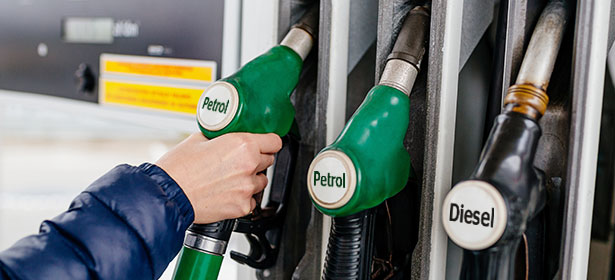ISLAMABAD: Honda Pakistan on Wednesday was issued a warning by Oil Companies Advisory Council (OCAC) to take back its complaint about sale of inferior-quality fuel or be ready to face legal consequences.
OCAC is a representative body of several oil marketing companies (OMCs) and refineries in Pakistan. Its problems have been compounded by the raising of doubts by one of its member Hascol Petroleum, who voiced support for Honda which had accused OMC’s of mixing manganese in petrol.
Hascol had also demanded the government to raise compliance measures and ensure the upgradation of fuel quality available in the market, reported a local newspaper.
Profit had reported last week that Pakistan’s state oil and gas regulator would investigate a complaint that fuel suppliers including local units of Shell and Total as well as Pakistan State Oil (PSO) had added manganese to their gasoline.
Honda Motor Co’s Pakistan subsidiary, Honda Atlas Cars (Pakistan) Ltd, filed the complaint, saying the additive appeared to be damaging engines in its vehicles.
Manganese can be added to fuel to make it appear to be of a higher quality but it can reduce fuel economy and potentially harm public health due to emissions.
Honda’s complaint states Pakistani suppliers used the additive to elevate the Research Octane Number (RON) used to grade petroleum and lower quality fuel up to the RON 92 grade required by regulatory standards.
OCAC insisted fuel being sold across Pakistan followed approved specifications issued by Energy Ministry and the Petroleum Division. It added, all OMCs including Hascol are importing and purchase petroleum products from local refineries in compliance with approved specifications.
It reiterated, that POL products being sold in Pakistan by every OMC followed similar specifications and strict compliance measures.
According to an OCAC official, Hascol was taking advantage of the situation and badmouthing three largest OMCs to gain market share at their expense. It said the likely reason of observed catalyst blocking could be attributed to faulty engine management system or higher sulphur fuel.
It further explained that Pakistan was on the initial stages in transformation of its clean fuel journey and sulphur content was at a higher level than that required for Euro-IV automobiles, such as Honda Civic 1.5L VTEC Turbo which was mentioned in the complaint.
Furthermore, OCAC said 91RON fuel was suggested for usage in VTEC turbo vehicle, which means it is optimized to operate on this above-mentioned fuel. If this car is operated on fuel whose quality is lower than 91Octane, it will knock which will get caught by knock sensor and cause a delay in ignition timing to avoid engine damage. And if knock sensor gets damaged, catalyst plugging could happen as a result of engine knocking, OCAC elaborated.
OCAC believed this condition is likely to occur in this Honda Civic 1.5L VTEC Turbo model, said to be turbocharged and high compression (10:6:1), whilst other models haven’t experienced these problems since they are non-turbocharged and lower compression.
It was off the view that Honda’s reason for suspending Civic 1.5L VTEC Turbo sales was to ensure adjustment it for local market and instead blamed catalyst failures and potential warranty claims on fuel quality which could be attributable to wrong calibration of it.
OCAC said this car model of Honda wasn’t compatible with POL products available in Pakistan due to it being a Euro-IV vehicle. It further elaborated the engine management system of Honda’s vehicle wasn’t properly optimized for Pakistani market.
And it said manganese is unlikely to have caused engine failure of Honda’s vehicle. OCAC said Euro-II vehicles present in Pakistani market weren’t facing these issues and it said there were reports that a Honda “team from Japan was replacing the software used in the 1.5L VTEC strongly suggests that the problem is not fuel-related but because of an incompatible vehicle emission management system.”
























